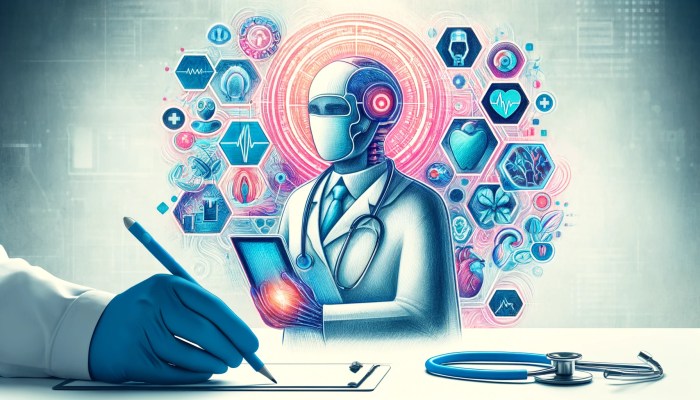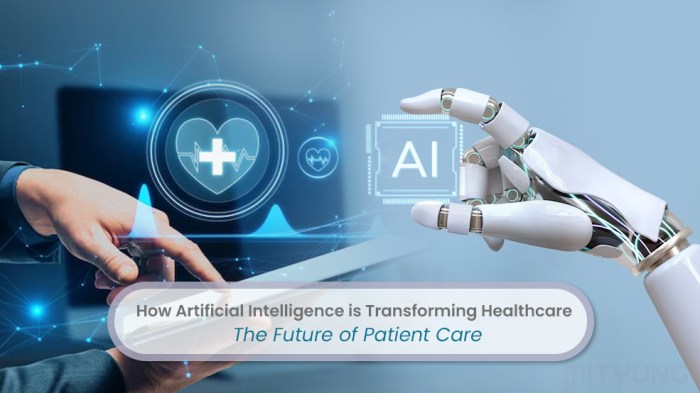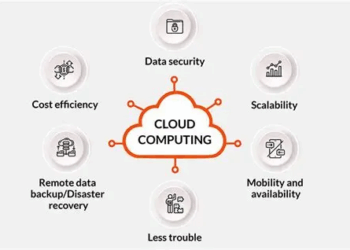
Embark on a journey exploring how AI is reshaping modern health information systems, bringing innovation and improvements to the healthcare industry.
Delve into the transformative power of AI applications and their impact on healthcare management and patient outcomes.
The Impact of AI on Modern Health Information Systems
AI has brought about a significant revolution in modern health information systems, transforming the way healthcare data is managed and utilized. By leveraging advanced algorithms and machine learning techniques, AI has enabled healthcare organizations to streamline processes, improve patient care, and drive better outcomes.Integrating AI into healthcare information management offers a wide range of benefits.
One of the key advantages is the ability to analyze vast amounts of data quickly and accurately, leading to more informed decision-making. AI can also help in predicting patient outcomes, identifying at-risk populations, and personalizing treatment plans based on individual patient data.
Examples of AI Applications in Modern Health Information Systems
- Medical Imaging Analysis: AI-powered algorithms can assist radiologists in interpreting medical images more efficiently, leading to faster diagnosis and treatment.
- Predictive Analytics: AI can analyze patient data to predict potential health issues or complications, allowing healthcare providers to intervene proactively.
- Natural Language Processing: AI-driven systems can extract valuable insights from unstructured data such as clinical notes, research papers, and patient records.
- Virtual Health Assistants: AI-powered chatbots and virtual assistants can enhance patient engagement, provide personalized health information, and offer round-the-clock support.
AI-Powered Decision Support Systems
AI-powered decision support systems play a crucial role in enhancing the decision-making processes in healthcare. These systems utilize AI algorithms to assist healthcare professionals in making informed decisions based on data analysis, patterns recognition, and predictive modeling.
Improved Patient Outcomes
AI-driven decision support systems have shown significant improvements in patient outcomes across various healthcare settings. For example, a study conducted by Mayo Clinic found that AI algorithms used in decision support systems helped reduce medical errors and improve diagnostic accuracy in radiology.
By analyzing large datasets and identifying subtle patterns that may go unnoticed by human eyes, AI systems can provide healthcare professionals with valuable insights to make more accurate and timely decisions.
- AI algorithms can analyze patient data in real-time to identify potential risks or complications, allowing healthcare providers to intervene proactively and prevent adverse events.
- Decision support systems powered by AI can assist physicians in choosing the most effective treatment plans based on individual patient characteristics, medical history, and response to previous treatments.
- By integrating AI into clinical decision-making processes, healthcare organizations can streamline workflows, reduce costs, and improve overall quality of care for patients.
Data Analytics and Predictive Modeling in Health Information Systems

Data analytics plays a crucial role in modern healthcare systems, allowing for the extraction of valuable insights from vast amounts of data. When combined with AI technology, data analytics can revolutionize patient care by enabling predictive modeling to forecast health trends and outcomes.
Utilizing AI for Data Analytics in Healthcare
AI algorithms are adept at processing and analyzing large datasets quickly and efficiently, identifying patterns and correlations that may not be apparent to human analysts. By leveraging AI for data analytics, healthcare providers can gain valuable insights into patient populations, treatment effectiveness, and disease trends.
This allows for more informed decision-making and personalized care for patients.
The Significance of Predictive Modeling in Improving Patient Care
Predictive modeling involves using historical data to forecast future events or outcomes. In healthcare, AI-powered predictive modeling can help identify high-risk patients who may require proactive interventions, optimize treatment plans based on predicted outcomes, and anticipate potential complications. By leveraging predictive modeling, healthcare providers can improve patient outcomes, reduce costs, and enhance overall quality of care.
AI Algorithms Analyzing Large Datasets for Health Predictions
AI algorithms can sift through vast amounts of healthcare data, including electronic health records, diagnostic images, and genetic information, to identify patterns and predict health trends. By analyzing these large datasets, AI can help healthcare providers anticipate disease outbreaks, identify at-risk populations, and tailor interventions to individual patients.
This proactive approach to healthcare can lead to early detection, better outcomes, and more efficient resource allocation.
Security and Privacy Considerations in AI-Driven Health Information Systems

Maintaining data security and privacy in AI applications for healthcare is crucial due to the sensitive nature of patient information. Ethical concerns also arise with the use of AI in health information systems, as issues such as bias in algorithms and unauthorized access to data can impact patient care and trust in the healthcare system.
Challenges of Data Security and Privacy
- AI systems may be vulnerable to cyberattacks, leading to breaches of patient data.
- Ensuring secure transmission and storage of data is essential to prevent unauthorized access.
- Compliance with regulations like HIPAA is necessary to protect patient confidentiality.
Ethical Concerns in AI-driven Systems
- Ensuring transparency in AI algorithms to avoid bias and discrimination in patient care.
- Respecting patient autonomy and informed consent when using AI for decision-making.
- Addressing the potential impact of AI on healthcare disparities and access to care.
Strategies for Ensuring Confidentiality
- Implementing robust encryption methods to protect data both at rest and in transit.
- Regularly auditing AI systems for security vulnerabilities and compliance with privacy regulations.
- Training healthcare staff on data security best practices and the ethical use of AI technology.
End of Discussion
In conclusion, the integration of AI in health information systems holds immense potential for enhancing decision-making, data analytics, and patient care. The future of healthcare is undoubtedly intertwined with the advancements in AI technology.
FAQ Corner
How has AI revolutionized health information systems?
AI has streamlined processes, improved efficiency, and enabled better decision-making in healthcare.
What are the benefits of integrating AI into healthcare information management?
Integrating AI leads to improved diagnostics, personalized treatment plans, and enhanced patient outcomes.
How is AI used for data analytics in healthcare?
AI algorithms analyze vast amounts of data to uncover insights, trends, and patterns that can improve patient care.
What are some security and privacy considerations in AI-driven health information systems?
Ensuring data security, privacy, and ethical use of AI are crucial considerations to maintain patient confidentiality and trust.













